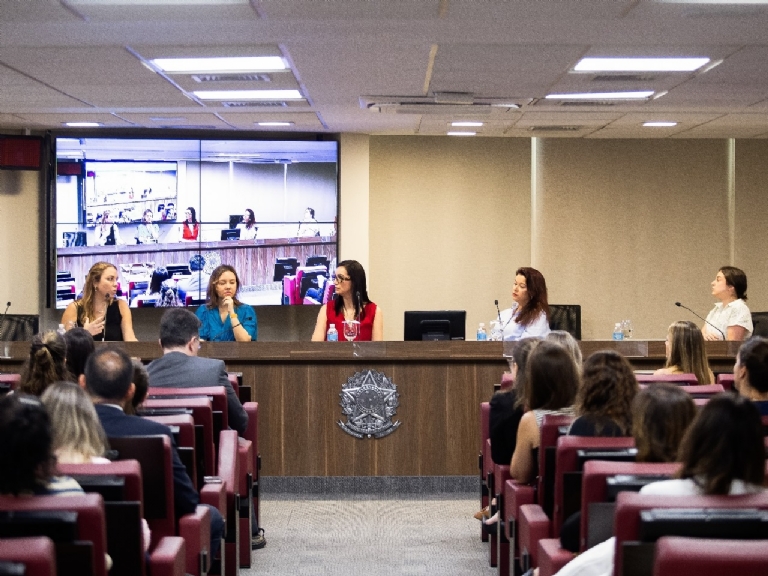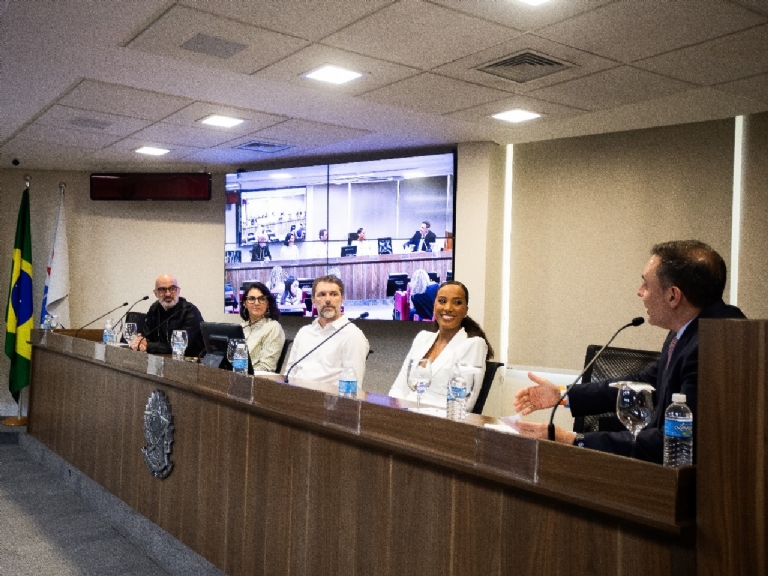

“This is a topic that has been growing in importance, as operating companies, the so-called ‘bets’, have greatly increased their advertising investments. And this movement raises a series of questions regarding the applicable standards and ethical limits within the advertising market," commented José Maurício Fittipaldi, President of the Media, Entertainment and Culture Commission of the OAB/ SP.
The first panel of the day, entitled “Advertising of bets and influencers: standards and limits for advertising of online bets, considering Annex X of Conar and the applicable legislation”, was moderated by Larissa Muller, of the Media, Entertainment and Culture Commission of the OAB SP.

The panel included Juliana Vilhena Nascimento, publicist, director of FCB/SIX, president of the Customer Service and Business Group and advisor to Conar (National Advertising Self-Regulation Council); Maria Marta Dias Heringer Lisboa, of the OAB/SP Media, Entertainment and Culture Commission, and partner of UOL Adtech; Juliana Albuquerque, executive vice president of Conar; and Maria Fernanda Ramirez Assad, jurist specialized in Civil Law and author of publications.
“The betting market has been a major advertising force in recent years. We know that it is a cyclical movement. We saw this movement with the tobacco industry, for example. And today, we can say that every advertising agency wants to have a betting company to call their own,” mentioned Juliana Vilhena Nascimento, also discussing the relevance of the topic and the government’s position on betting.
The second panel was moderated by Yhannath Silva, also a member of the OAB/SP Media, Entertainment and Culture Commission, in addition to having a postgraduate degree in Anti-Corruption Compliance from PUC Minas Gerais University and Co-founder of the IANB, and addressed regulatory and compliance issues, discussing the Brazilian and international regulatory scenario related to the betting sector, and the legal responsibilities of influencers when promoting services of this nature.
The guests at the panel were Beatriz Gimenez Costa, member of the Compliance Committee of the OAB SP and director of compliance at Casa de Apostas Reals Bet; Fernanda Meirelles de Oliveira Leite, head of the Technology, media and telecommunications area at FAS Advogados; Luiz Felipe Santoro, MBA in Football Industries from the University of Liverpool, and president of the Gaming Law, Betting and Responsible Gaming Committee of the OAB SP; and Natalia Kuchar, corporate consultant at Google.
“We have Google Ads policies, which cover not only what is permitted by law, but also by rules within the platform. Sometimes, the issue may even be legal, but is not permitted by the platform, such as the requirement for a disclaimer on responsible gaming,” explained Natalia Kuchar, from Google.

An expert on the subject, Luiz Felipe Santoro contributed to the discussion by pointing out that regulation facilitates monitoring and consumer care: “The market that exists today, where the consumer is unprotected, is not the market we will see from January 1, 2025. From 2018 until now, companies have operated legally, but in an unregulated manner, operating in a legal activity that did not even pay taxes.”
“So, several criticisms that could have been addressed back in 2018, when the law was passed, or even in 2019, 2020, 2021, when companies operated without regulation, are being addressed now that we have very robust regulation, as has already been said here,” added Santoro.
The theme of managing partnerships with influencers was the focus of the third and final panel of the event. The mediation was carried out by José Maurício Fittipaldi, president of the Commission, who asked specific questions about this relationship to the panel members: Caio Cesar Dominguez, communicator and founding partner of the agency Loi Digital; Ana Paula Passarelli, co-founder and director of the agency Operações da Brunch; Carlos Scappini, partner and co-founder of the agency Music2Mynd; and Carol Novaes, influencer and lawyer who is a member of the OAB board of directors in the Pinheiros Sub-Section.
“We are talking about an ecosystem that has a lot of people in its way. There are many people participating in this ecosystem between the creator and the betting house, and each one delivers a value. So, regarding responsibility, for example, the influencer also needs to be responsible for what they publish,” commented Ana Paula Passarelli, from Brunch.
“We also need to realize that the speed at which a law or rule is created, and the way in which it is communicated, is a much slower process than the speed at which the industry moves. A major theme raised at Conar is that it is no use just deleting the post or the campaign. The challenge that remains is the way in which we create legislation and regulation will have to change as well. We need a higher level of speed to serve everyone, supposedly,” stated Carlos Scappini, from Music2Mynd.
Finally, Carol Novaes, influencer and lawyer, commented on the other side. “I don’t advertise anything that I don’t believe in. It always involves more things than it seems. It is important to take responsibility, as an influencer, so I am cautious. If I don't believe in the speech, I won't do the advertising," she added.
Source: GMB